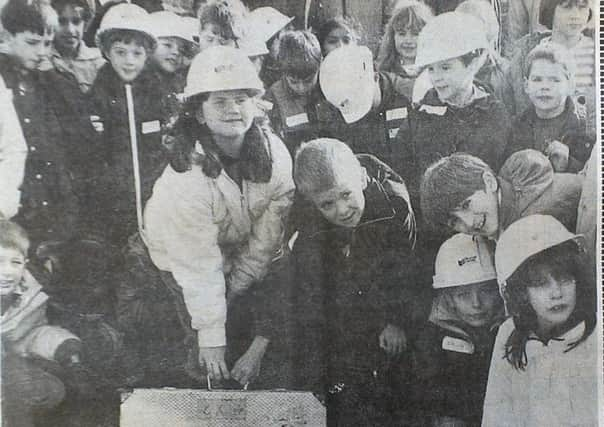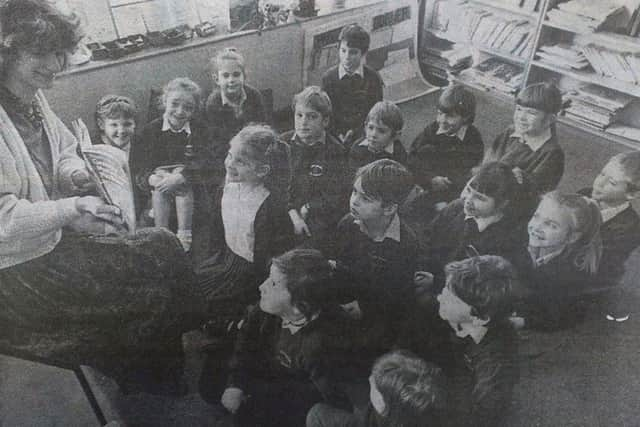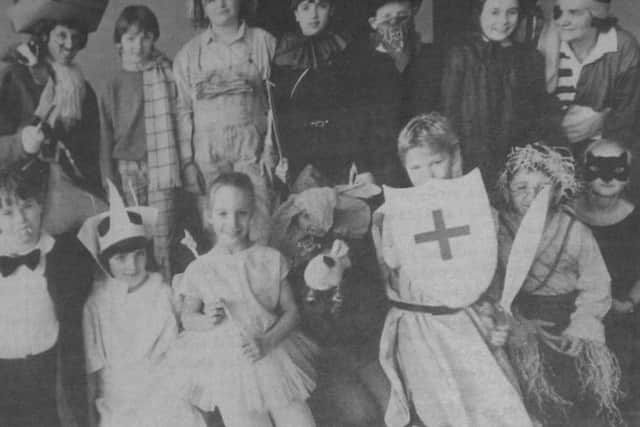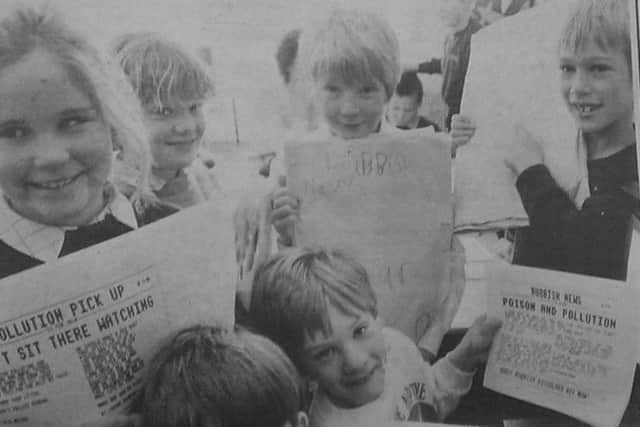What would you have put in a time capsule in 1990?
This article contains affiliate links. We may earn a small commission on items purchased through this article, but that does not affect our editorial judgement.


In 1990, the children of Bishop Bell School were given just that task before burying the box in Maidenbower.
The neighbourhood was still unfinished back then and, according to a report in the Crawley Observer, the box was buried in Knight’s Meadow.
Advertisement
Hide AdAdvertisement
Hide AdIt included a picture of actor turned pop star Kylie Minogue and 30 essays written by the children, describing 1990 to give future youngsters a glimpse of what the world was like in the ‘olden days’.


Pictured lowering the time capsule into the ground are nine-year-old Laura Rouart and eight-year-old Ben Ford.
Does anyone know if the time capsule has been dug up yet?
Bishop Bell Infant school opened in Loppets Road, Tilgate in 1958, followed a year later by the junior school.
When the Robert May Infant and Junior Schools opened soon after, children in both Tilgate and Furnace Green were well served for primary education.


But changes were afoot.
Advertisement
Hide AdAdvertisement
Hide AdIn the 1970s, it was decided that the Bishop Bell schools would be used for the education of eight to 12-year-olds in the area while nearby Robert May would cater to the younger children.
Further changes came about in 1997 when, following educational reforms in the town, it was decided that both Bishop Bell and Robert May would close to re-open on the Bishop Bell site as The Oaks. From little acorns, and all that.
Back to 1990, and over at West Green First School, children were stretching their environmentally friendly muscles when they produced some newsletters about pollution.


Called Pollution Pick Up, Polluted Planet News and Rubbish News, they shared the children’s ideas for protecting the environment.
Advertisement
Hide AdAdvertisement
Hide AdTheir efforts didn’t stop there. The school was awash with bottle tops and aluminium cans which had been collected for recycling by the industrious youngsters.
While the West Green team was looking to the future, the children of Copthorne Junior School were celebrating the past.
Their school had been educating village youngsters for 100 years and they marked the anniversary – Empire Day – by recreating a school day from the Victorian times.


The children, who all dressed in Victorian garb, were moved into the school’s original 19th century classroom for lessons and were left counting their blessings after finding out what their predecessors would have endured in the name of education.
Advertisement
Hide AdAdvertisement
Hide AdSpeaking to the Observer at the time, Paul Kell, 11, said: “The lessons were much more boring than the ones we do.”
Young Paul also felt the windows in the Victorian building had been set too high, preventing children from daydreaming as they gazed out into the playground when they were supposed to be writing.
Natalie Ford, who was 10, said the children of 1890 had to work much harder than those of 1990. She added: “It was horrible for them. They got 70 children in this room where we have only 25 and it was very cramped.”
The only part of the ‘Victorian experience’ teachers chose not to share was discipline. While the 19th century youngsters would have been caned for misbehaving, the 20th century children must have been relieved to know a telling-off was the worst that would happen!
Advertisement
Hide AdAdvertisement
Hide AdStill at Copthorne Juniors, but leaving the 19th century far behind, the children were given some very early lessons in business skills.


They formed their own companies and learned about market surveys, bank loans and profit margins, with profits from all sales being put towards the repair of the school swimming pool, which had been damaged during some particularly nasty winter storms.
Elsewhere, the subject of Europe was on everyone’s lips, especially the proposed introduction of a single market – the EU – in 1993.
While Britain had been part of the European Economic Community since 1973, John Wells-Thorpe, who was chairman of the Sussex Institute of Directors, said we should be in “no rush” to join the EU.
Advertisement
Hide AdAdvertisement
Hide AdMr Wells-Thorpe said he thought the country should wait until 1996, when he felt lower taxation and higher interest rates would apply.
It makes you wonder what the people of 2042 will think of today’s debate over whether or not Britain should remain in the EU.
Don’t miss out on all the latest breaking news where you live.
Here are four ways you can be sure you’ll be amongst the first to know what’s going on.
Advertisement
Hide AdAdvertisement
Hide Ad1) Make our website your homepage at www.crawleyobserver.co.uk
2) Like our Facebook page at www.facebook.com/crawleyobserver
3) Follow us on Twitter @Crawley_Obby
4) Register with us by clicking on ‘sign in’ (top right corner). You can then receive our daily newsletter AND add your point of view to stories that you read here.
And do share with your family and friends - so they don’t miss out!
The Crawley Observer - always the first with your local news.
Be part of it.